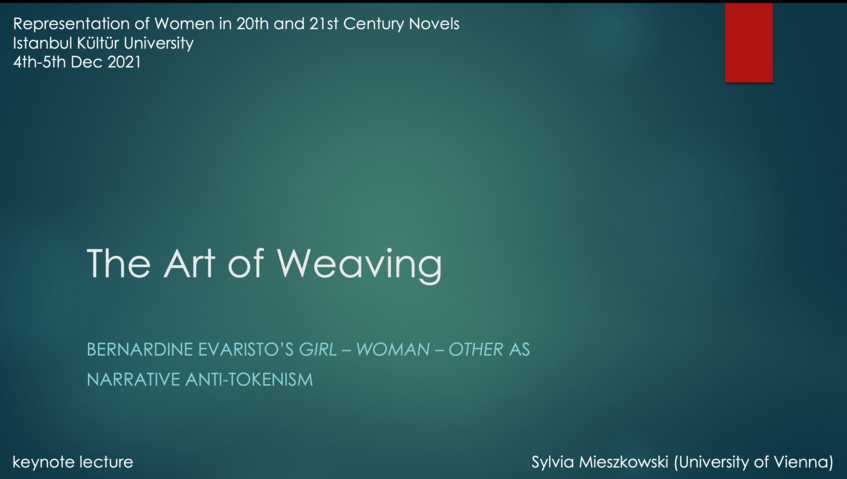Gender Studies: Ein Fach, das die Gemüter bewegt
Dr. Katharina Wiedlack,
Junge Akademie Blog, derstandard.at
8. Dezember 2021

At Home during Lockdown and the Issue of Gender

At Home during Lockdown and the Issue of Gender
Prof. Sarah Heinz
Lockdown made many people re-assess their sense of home, but how does gender come into this?
Dr. Katharina Wiedlack analyses the impact of Russian thought and people on American progressives, suffragists, abolitionists, and social reformers during the 19th and early 20th century.
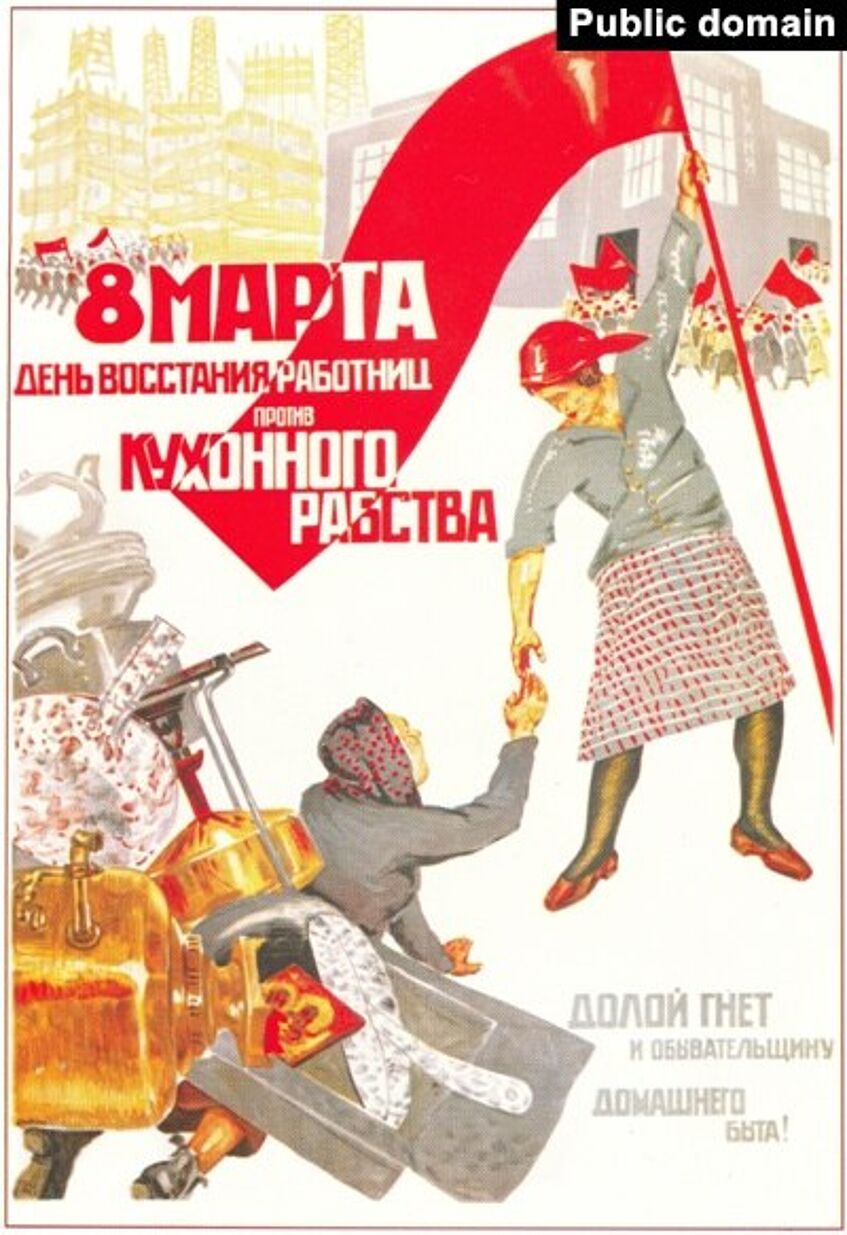
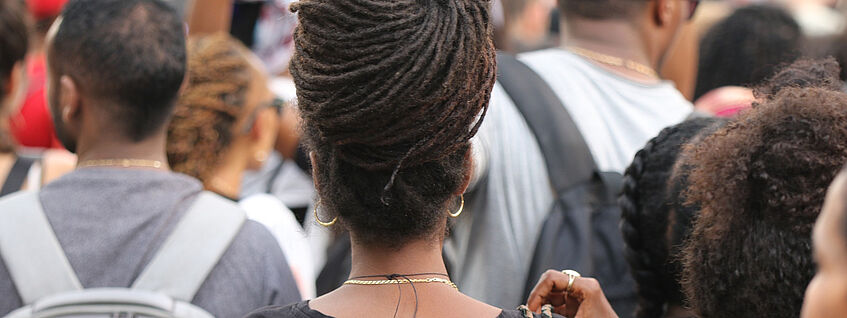
Dr. Marta Werbanowska
In this lecture, delivered as part of the "Cultural Theories and Popular Culture: African American Perspectives" course I taught in the winter 2021/22 semester, I talk about the history of (mis)representations of Black women in Western art and popular imagination as well as Black women's responses to this ongoing history of distortion and erasure of their image. Key points of this lecture include stereotypes of Black women in the American imagination, the history of respectability politics and Eurocentric beauty standards/colorism in U.S. media and popular culture since early 20th century, and the continued questions of reclamation, agency, oppositional gaze, and the pitfalls of commodification/objectification in contemporary popular culture. I also discuss misogynoir as it pertains to representation, and propose a reading of #BlackGirlMagic and "hood" feminism as two recent responses to this particular form of violence against Black women.
The full lecture can be viewed here. (Password: P904#@g%)
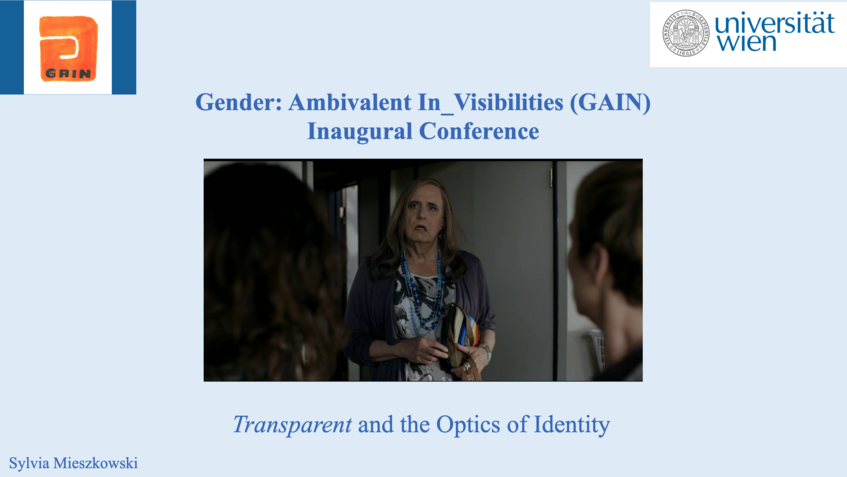
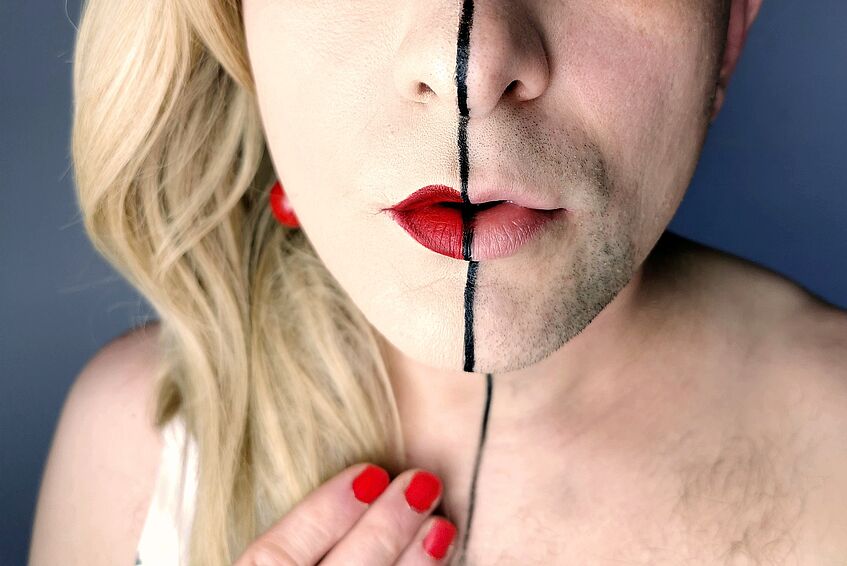
"Transparent" and the Optics of Identity
Prof. Sylvia Mieszkowski
2021
This talk discussed the TV-series Transparent (2014-2018). My argument proceeds in three steps: Firstly, I show the many meanings that the concept of 'the transparent' transports in different discursive/disciplinary contexts. My second point is that in a trans-phobic society, building and maintaining a trans-identity based on ‘being seen’ is necessarily characterized by constant (and sometimes risky) negotiation. The concern with ‘how things look’ to the heteronormative gaze, can lead to a need for invisibility that jars against the very desire for visibility that is necessary to attain intelligibility. The transparent, in this context, is inevitably ambivalent, since wishing/needing to be seen clashes with the need to protect oneself through practices of invisibilisation from an aggressive or judgmental heteronormative gaze that potentially precedes violent action. Finally, I argue that the series Transparent interrogates conditions of the desiring/desirable self along questions of in_visibilisation. While the camera denies viewers the voyeuristic gaze, it represents - enclosed by the semi-transparent - a safe space in which sex non-normative sex between “human persons”, who reject traditional categories of gender can, but does not have to take place.
Queer-Feministischer Punk: Rebellion zwischen Hardcore Punk und Queer Community
Dr. Katharina Wiedlack
Fringe of the Fringe conference, 20.11.2021 (in German)
Am Beispiel einzelner Bands und deren Songs wird die US-amerikanische queerfeministische Punk-Bewegung mit ihren vielfältigen politischen und sozialen Anliegen vorgestellt. Warum haben sich die Communities und Individuen Punk als musikalische und ästhetische Form ausgesucht? Was wollen sie mit ihren provokativen Liedern und ihrer lauten, aggressiven Musik erreichen?
Besonders wird darauf eingegangen, wie sich gesellschaftlich marginalisierte Individuen und Gruppen, also etwa Frauen, nicht-binäre und Trans* Personen, People of Color und Schwarze Personen, aber auch Menschen mit Behinderung Punk-Musik angeeignet haben, um sich Gehör zu verschaffen und sich zu solidarischen Communities zusammenzuschließen. Auch Aspekte der Archivierung und Erinnerungskultur rund um queer-feministischen Punk sind in dem Zusammenhang relevant. Hierbei soll mit dem anwesenden Publikum diskutiert werden, wie oder ob und für wen Punk-Kultur überhaupt in Institutionen, wie etwa Universitäten oder staatlichen Archiven gesammelt und konserviert werden soll. Auch die wissenschaftliche Analyse soll dabei als Form der Archivierung und Erinnerungskultur kritisch reflektiert werden.
Fighting for Equality

Fighting for Equality
“It is not our differences that divide us. It is our inability to recognize, accept, and celebrate those differences” (Audre Lorde)
Dr. Tatiana Konrad
In my research, I recognize the long history of injustice and oppression, as communicated through various cultural texts, and explore how such knowledge about the past can help us identify and fight against the ongoing forms of inequality and build a better future for everyone. As I engage with gender and how it intersects with sexuality, race, ethnicity, disability, and age, I critically approach the systems of power and inequality and demonstrate why fighting against injustice and oppression should be an attitude that everyone must develop to fix the troubled present and secure a better future for the next generation. As a cultural studies scholar, I foreground the crucial role that cultural texts play in this complex endeavor.
“Affective Afterlives: Archiving Contemporary Feminist and Queer Activism in Ireland”
Dr. Tamara Radak
As part of its “born digital” collections, the National Library of Ireland acquired the material as well as digital archive of #WakingtheFeminists, a feminist grassroots movement in the Irish theatre sector that ran from 2015 to 2016, as well as photographs and other materials relating to the “Yes equality” campaign in the lead-up to the marriage referendum (2015).
The archives contain physical artefacts and digital and digitised texts from these movements, highlighting the hybrid nature of contemporary activist movements, which often contain elements of transmedia storytelling (see Notles and Crosby; Jenkins). The third case study that this project proposes to investigate is the “Repeal the 8th” campaign, which petitioned for the repeal of 8th amendment – a constitutional ban on abortion – in the lead-up to a referendum in 2018. In addition to their use of transmedia storytelling throughout the campaigns, the activist movements also display different forms of commemoration across media: For example, the “Archiving the 8th” project was founded in 2018 with the aim to collect, preserve, and make widely available a range of physical and digital materials relating to the campaign; in 2020, members of the “Repeal the 8th” campaign published the memoir and anthology In Her Shoes: Women of the Eight, which was based on stories from an art project on Facebook during the campaign; in 2021, the podcast series “How the Yes was won” was established, contextualising the “Repeal the 8th” campaign within the history of reproductive rights in Ireland.
This interdisciplinary project explores the intermedial and transmedia aspects of these activist movements, focussing on their construction and circulation of “networked affect” (Paasonen et al.) as well as the ‘affective afterlives’ of the campaigns’ material objects and digital cultural texts between institutionalised archiving and artistic forms of commemoration.
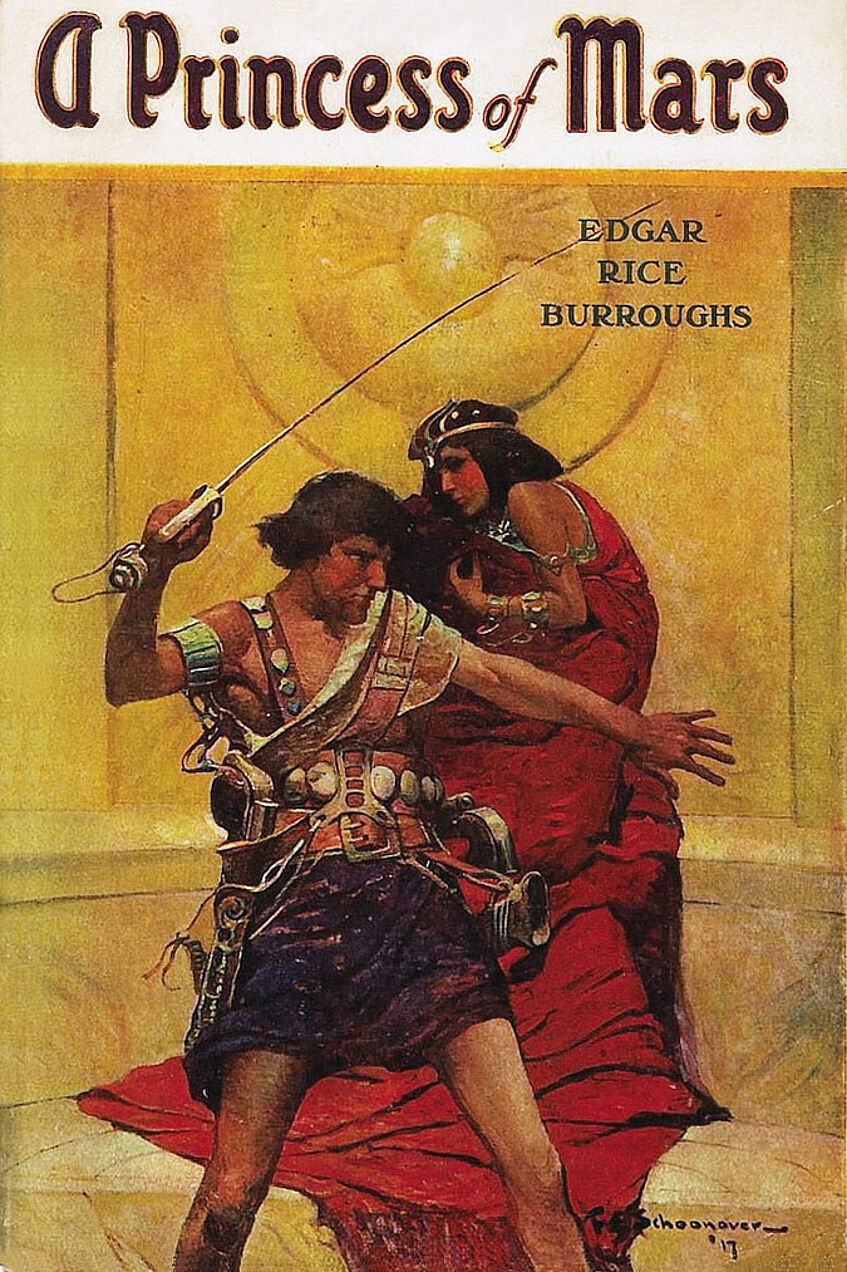
Gendering Outer Space: Women’s Astrofuturist Mobilities in Contemporary American Film and Television
Prof. Alexandra Ganser
This project is part of my larger research interest in American astrocultures and astrofuturist discourses that make palatable outer space colonization and settlement. It begins with the first instances of women in outer space in popular Science Fiction, Edgar Rice Burrough’s A Princess of Mars (1912) and traces the history of female spacefarers on screen since then, from Project Moonbase (1953) to today’s Lucy in the Sky (2019) or the Netflix series Away (2020), to name but a few. Examining these and other enactments of what Amy Kaplan famously called “Manifest Domesticity” in 19th-century American literature, I argue, with Lauren Berlant and others, that a feminized “public sentimentalism” on display in these (final) frontier (re-)enactments reproduces problematic heteronormative gender stereotypes as being at the core of a new period of foundational national imaginaries today that translate notions of an American Empire to outer space. Race and class differences, once more, are either integrated into a master narrative or silenced completely; yet I am also exploring transnational critical responses to such gendered discourses, from Afrofuturist revisions to films like Claire Denis’ High Life (2018).
Autobiographical Spoken Word Poetry as Feminist Activism
“No matter how embarrassed I feel as she sips”
Dr. Julia Lajta-Novak
PODCAST
LadyFiction #5: On Electric Women:
Reading Margaret Fuller's "Woman in the 19th Century"
PODCAST
LadyFiction #8:Thinking Post-Pandemic Futures in Women’s Novels:
The Tiger Flu (2018) and Station Eleven (2014)
PODCAST
LadyFiction #9: The American Home in Flames:
Art vs. Motherhood in Little Fires Everywhere
tags, wings & uniforms
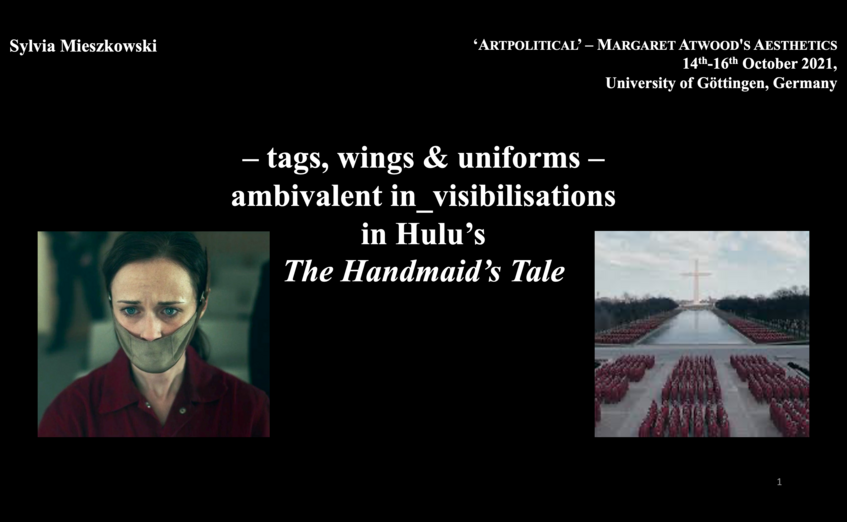
Prof. Sylvia Mieszkowski
(October 2021)
This talk discussed the streaming-service Hulu's TV series The Handmaid's Tale. It argues that Gilead’s tools of visibilisation are all characterised by ambiguity. Removing her tag gives the protagonist June greater agency than she had before it was installed. The wings limit the handmaids’ ability to orient themselves and are meant to shut them off from each other, also offer protection from being monitored too closely. The scarlet garb, meant to de-individualise the handmaids and make them hypervisible/easy to surveil, also produces anonymity and a sense of group identity. Moreover, tags, wings and uniforms, all initially instruments of submission, help June to transform herself into a leader of the resistance.
The Art of Weaving
Prof. Sylvia Mieszkowski
(8 December 2021)
This talk discussed Bernardine Evaristo's Booker Prize-winning novel Girl - Woman - Other (2019). It argues that the sheer number and variety of Black female characters (of all ages, many genders, and divers sexualities) whose voices the novel weaves together, demonstrates what it can sound like if intersectionality-saturated representation combats both problematic invisibility and problematic hypervisibility (Solanke) by activating ‘many stories’ against ‘the one story’ (Adichie) and thus unleashes literature’s potential as an anti-tokenist tool that has to power to reconstruct the exclusive system (Eddo-Lodge) of ‘the master’s house’ (Lorde).
